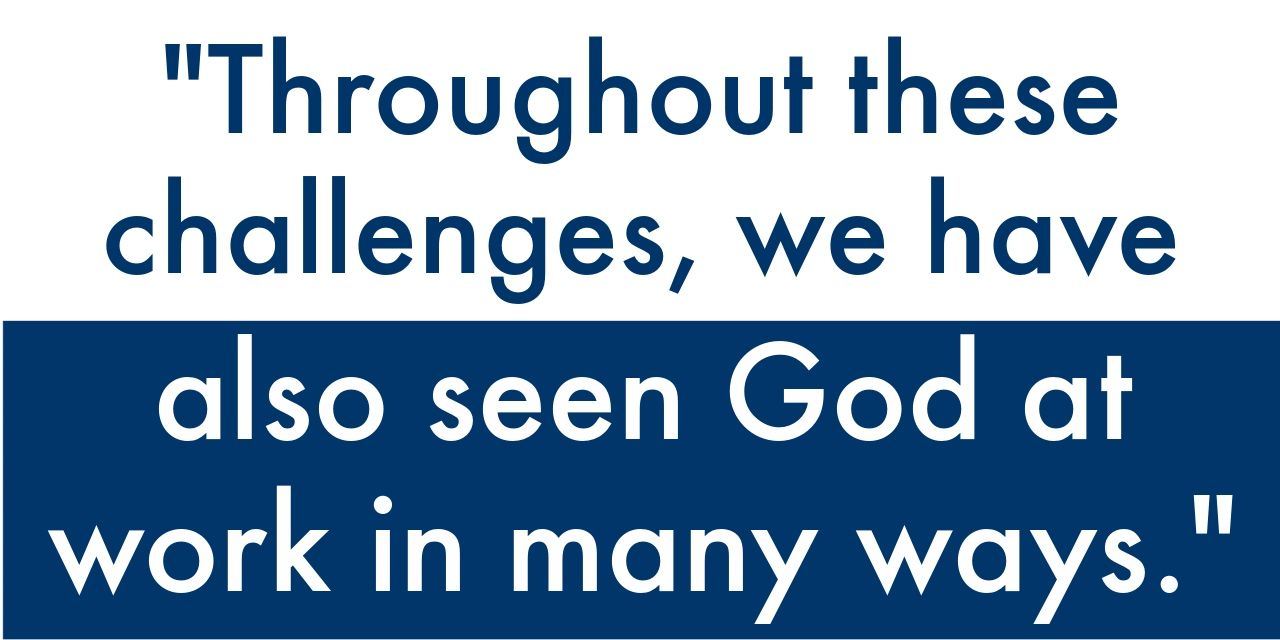
Providing Care During the Pandemic
This post is an excerpt from SEND Canada's 2020 Annual Report. To read more, click here !
-----
What’s an international organization like SEND to do when a pandemic sweeps the globe? Praise the Lord that He put an epidemiologist on staff, for such a time as this.
The COVID Response Team
That epidemiologist, along with specialists in corporate security, public health, member care, mental health, and children’s issues, came together to form SEND Internationals’ COVID-19 Response Team (CRT). The CRT has persistently provided expert, compassionate care to missionaries in this challenging season.
The SEND Canada Home Office worked in tandem with the CRT to support Canadian missionaries. For Patrick, SEND Canada’s Director of Personnel, 2020 required an increased level of care for missionaries who were responding to changing realities in their lives and ministries.
Challenges through the Pandemic
Canadian workers experienced a number of new challenges such as curtailed ministry opportunities, emotional strain, grief in losses, and significant uncertainty. Some missionaries struggled with having limited ways to communicate with colleagues, family, friends, and those they were trying to reach with the gospel. Others found themselves remaining longer than expected in Canada due to travel restrictions, and facing the challenge of “being on the opposite side of the world from the people we love and serve.” Loneliness was a continual struggle for many missionaries.
God at Work During the Pandemic
Throughout these challenges, we have also seen God at work in many ways. Patrick describes one tangible example: “Some of our missionaries have seen this as an opportunity to be still and work on their relationship with the Lord.” God has led them to “lie down in green pastures,” where their soul is restored.

God has also demonstrated His grace by leading unbelievers to himself over technological platforms. Joseph, serving in Diaspora ministries, explained, “On Christmas day, we led a young person to receive Christ via WeChat.” And he is not the only one to have witnessed miraculous heart transformation during the pandemic!
Lessons Learned Through the Pandemic
In a time when self-pity and frustration might be expected, Patrick noticed a general attitude of anticipation as our Canadian missionaries wondered, “What is God going to do through this?” While we can’t fully know the answer to that question, we are certain that God is using COVID-19 to teach some valuable lessons. Here are some lessons our Canadian missionaries are learning, in their own words:
" God is on his throne , even when I’m in a foreign country and completely helpless.”
“God is teaching me gratitude for so many things I usually take for granted.”
“There are no restrictions that can hold us back from loving God with all our hearts and making Jesus Christ known in the world.”
“God delights in showing us His tender care when we need it most.”
“ Be patient , and bloom where you are currently planted.”
“Flexibility is key, and it’s okay to not be okay.”
" The Lord’s plan is perfect , and He completes it with His power.”
“I learned how to trust in God on a completely different level.”
Additional Posts






